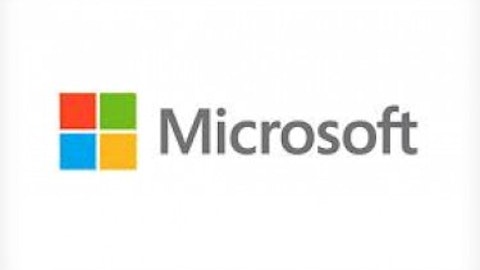Technology research and advisory firm Gartner predicted in a recent report that shipments of devices using Google Inc (NASDAQ:GOOG)’s Android will far exceed shipments of Windows personal computers and phones by 2017.

Further, Gartner predicts that by 2017 the number of tablets, mobile phones and ultra-mobile devices will total 2.7 billion units, roughly 10 times the number of desktop and notebook personal computers. These expectations reflect the pervasive belief that the future in computing is clearly mobile.
Should these expectations materialize, it would spell certain doom for Microsoft Corporation (NASDAQ:MSFT), whose software and other products depend heavily on the personal computer. The company was extremely late to the mobile game, and still doesn’t have a pronounced footprint in mobile.
With this in mind, could tech giant Microsoft Corporation (NASDAQ:MSFT) really cease to exist only a few short years from now? Is it really on the brink of vanishing from the Earth, or are fears of the company’s impending irrelevance overblown?
Could Microsoft really disappear?
It’s certainly true that when it comes to global smartphone sales, Google Inc (NASDAQ:GOOG) is the elephant in the room. The company’s Android devices accounted for nearly 70% of all smartphone shipments in the fourth quarter of 2012, according to a separate Gartner research report. This represented a 18 percentage point increase in market share versus the fourth quarter of 2011.
It’s clear that technology moves quickly. But Gartner is suggesting a $238 billion company could disappear in three or four years, and reasonable investors are likely not convinced technology moves that fast. There’s been a lot made of Microsoft Corporation (NASDAQ:MSFT)’s problems in recent years. Its stock price has gone nowhere for many years, the Chief Executive Officer Steve Ballmer comes under continued fire, and the company has wasted huge amounts of money on projects that haven’t panned out, including its $8.5 billion acquisition of Skype in 2011.
There are plenty of investors on each side of the Microsoft Corporation (NASDAQ:MSFT) argument. Some think that the company is extremely cheap and one of the best values on the market, while others side with Gartner and believe the PC is dead, and so is Microsoft. As is often the case, it appears the truth may lie somewhere in the middle.
Microsoft Corporation (NASDAQ:MSFT)’s days of huge growth are probably behind it, but on the other hand, it’s a stretch to say the company is dead. In fiscal 2001, Microsoft booked diluted earnings per share of $1.32 on revenue of $25 billion. Over the next decade, Microsoft grew its sales and profits at compound annual growth rates of 10.7% and 7.4%, respectively. Last year, Microsoft booked adjusted diluted earnings per share of $2.73, along with 5% revenue growth–not exactly fitting the description of a “dead” company.
It’s also worth noting Microsoft’s formidable financial position. Microsoft is one of only four U.S.-based stocks to hold a triple-A rating from Standard and Poor’s. The company has more than $63 billion in cash, equivalents and short-term investments on the balance sheet.
Can’t they both just get along?
Further, I don’t see why Microsoft Corporation (NASDAQ:MSFT) and Google Inc (NASDAQ:GOOG) can’t continue to co-exist. While global growth in PC sales is probably near a peak, it’s still extremely difficult to perform word processing and other complex tasks on mobile devices and tablets. Microsoft’s Office software continues to be a cash machine, particularly at the enterprise level.
Google Inc (NASDAQ:GOOG), meanwhile, continues to grow strongly itself. Fiscal 2012 revenue soared more than 30% year-over-year, and has more than doubled since 2008. Diluted earnings per share clocked in at $32.31 per share. Google Inc (NASDAQ:GOOG) has a superb compound annual growth rate in earnings per share of 25% since 2008.
Google will also continue to be the king of search. Microsoft’s Online Services division, which includes the Bing search engine, continues to hemorrhage money. Microsoft lost $8 billion last year from its Online Services division alone. If we’re in a rush to declare something dead, Microsoft’s search engine definitely fits the bill.
From an investing standpoint, Google and Microsoft are very different stocks. Google Inc (NASDAQ:GOOG) is still in high-growth mode, as evidenced both by its superb growth numbers as well as its valuation. Google trades for 25 times its trailing EPS and does not pay a dividend. Microsoft, on the other hand, trades for 10 times its adjusted earnings and pays a hefty 3.3% dividend. It seems that investors considering Google or Microsoft need to discern exactly what they’re looking for from their stock investments. Growth investors should clearly prefer Google, while value or income-oriented investors might lean towards Microsoft.
The article Is Google About to Destroy Microsoft? originally appeared on Fool.com is written by Robert Ciura.
Copyright © 1995 – 2013 The Motley Fool, LLC. All rights reserved. The Motley Fool has a disclosure policy.

